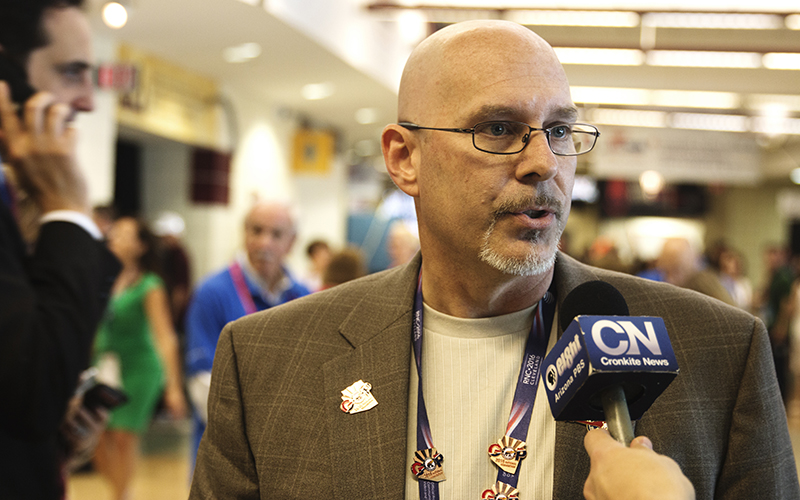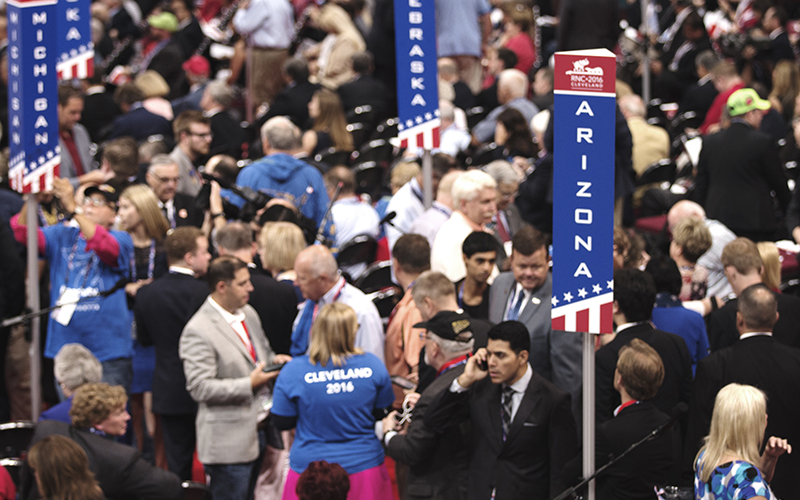
Arizona delegates prepare for the start of the Republican National Convention at Quicken Loans Arena, located in the heart of Cleveland. (Photo by Christopher West/Cronkite News)
CLEVELAND – Sun City resident Barbara Wyllie believes Donald Trump’s proposal for a border wall is still the best solution for American safety, despite a new poll that shows the overwhelming number of border residents don’t want a wall built.
“It needs to happen, we need to close the borders or we won’t have a country,” said Wyllie, an alternate delegate to the Republican National Convention here. “Bottom line, end of story, build the wall.”
Wyllie’s reaction was typical of Arizona delegates and alternates to the convention, who took issue with new border resident poll data from Cronkite News, the Dallas Morning News and Univision.
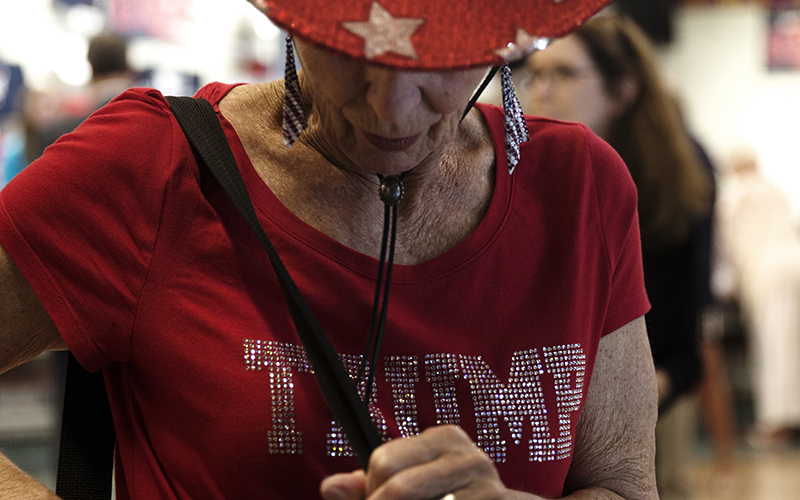
Arizona delegate Barbara Wyllie shows her party spirit at the convention. (Photo by Christopher West/Cronkite News)
That poll of nearly 1,500 residents in 14 towns on both sides of the U.S.-Mexico border – including Yuma and Nogales – found more than 70 percent of U.S residents in the poll don’t believe that a wall should be built between the two countries, while 86 percent of Mexican residents believe the same.
The poll was an attempt to dive deeper into what border residents think about a variety of topics such as labor mobility, neighborly ties, and the possibility of a wall.
But opposition to the wall, a highlight of likely Republican presidential nominee Trump’s campaign, drew the most criticism from delegates here. One suggested that the majority of border residents just didn’t understand what the wall could do for the region.
“[Border residents] don’t really see the whole dynamic of the wall, a wall is just a barrier to stop people from crossing,” said George Ortiz, an alternate delegate from Goodyear.
Ortiz cited illegal immigration, drug trafficking and a lack of security as reasons he supports the wall.
“There has to be some kind of division, a wall is the only answer,” he said. “Because what they have down there isn’t working.”
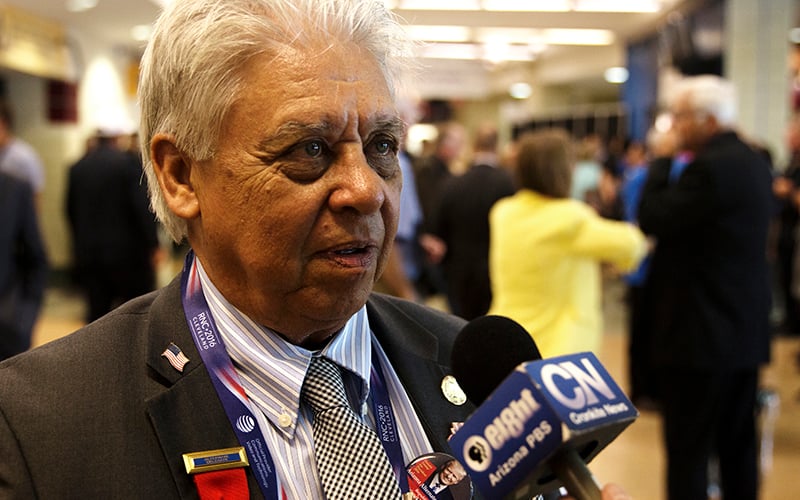
Arizona delegate George Ortiz speaks with Cronkite News about issues that face the Republican party throughout the state. (Photo by Christopher West/Cronkite News)
Not everyone disagreed with the border poll results. Arizona delegate Julie Lind said in response to a Public Insight Network query that we should “build some walls where that’s the best protection.” But Lind, who described herself as a lifelong Republican and 30-year Arizona resident, said she would “fight to stop a full border wall.”
“The wall is being considered and my hope is that the most informed professionals and experts are deferred to regarding our Party’s position,” Lind wrote.
But a majority of the delegates and alternates contacted questioned whether or not the poll results were truly reflective of what they have seen on the border.
“I grew up in Bisbee, Arizona, which is on the border, so I would have to question the poll,” said Corky Haynes of Peoria. “How was the question presented to them? Because I don’t know anybody who lives on the border that isn’t for the wall. How were the questions asked? Who were they polling?”
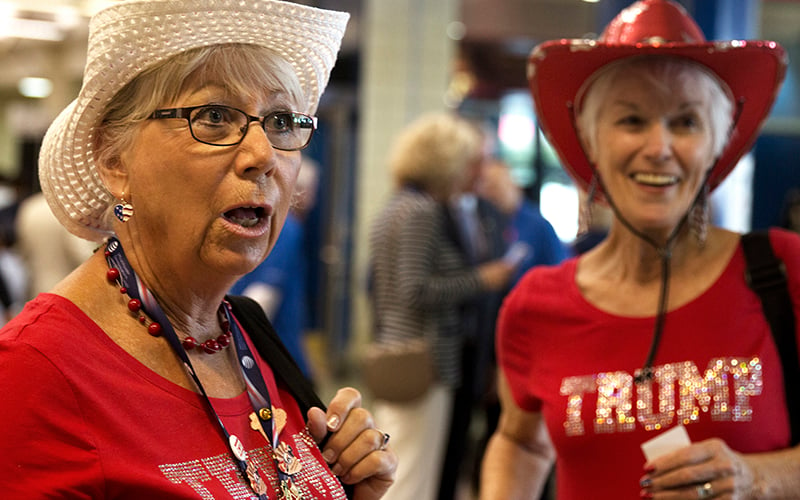
Corky Haynes and Barbara Wyllie, delegates from Arizona, express their reasoning behind voting in favor of Republican presidential candidate, Donald Trump. (Photo by Christopher West/Cronkite News)
While delegates here charged that the poll wasn’t true to border resident’s feelings, residents said in the poll that they don’t believe the federal government truly understand their needs. Nearly half of U.S. residents in the poll do not believe the government understands the concerns they hold more important, such as border mobility and jobs.
Delegates did agree with the 73 percent of U.S residents who view Mexico as a neighbor, but that’s where their concurrence ended. Delegates did not agree that Trump nor the wall would damage ties between the U.S and Mexico.
Border residents polled say otherwise. More than 60 percent of U.S-Mexico border residents said they believed Trump’s campaign rhetoric was hurting the border region.
Despite this, Arizona Republicans contacted Monday said they still want Trump as their pick for president.
“I think he is what the Republican people all across the nation have been picking, and I think he is the guy we are going to stand behind,” said Eric Morgan of Phoenix.
